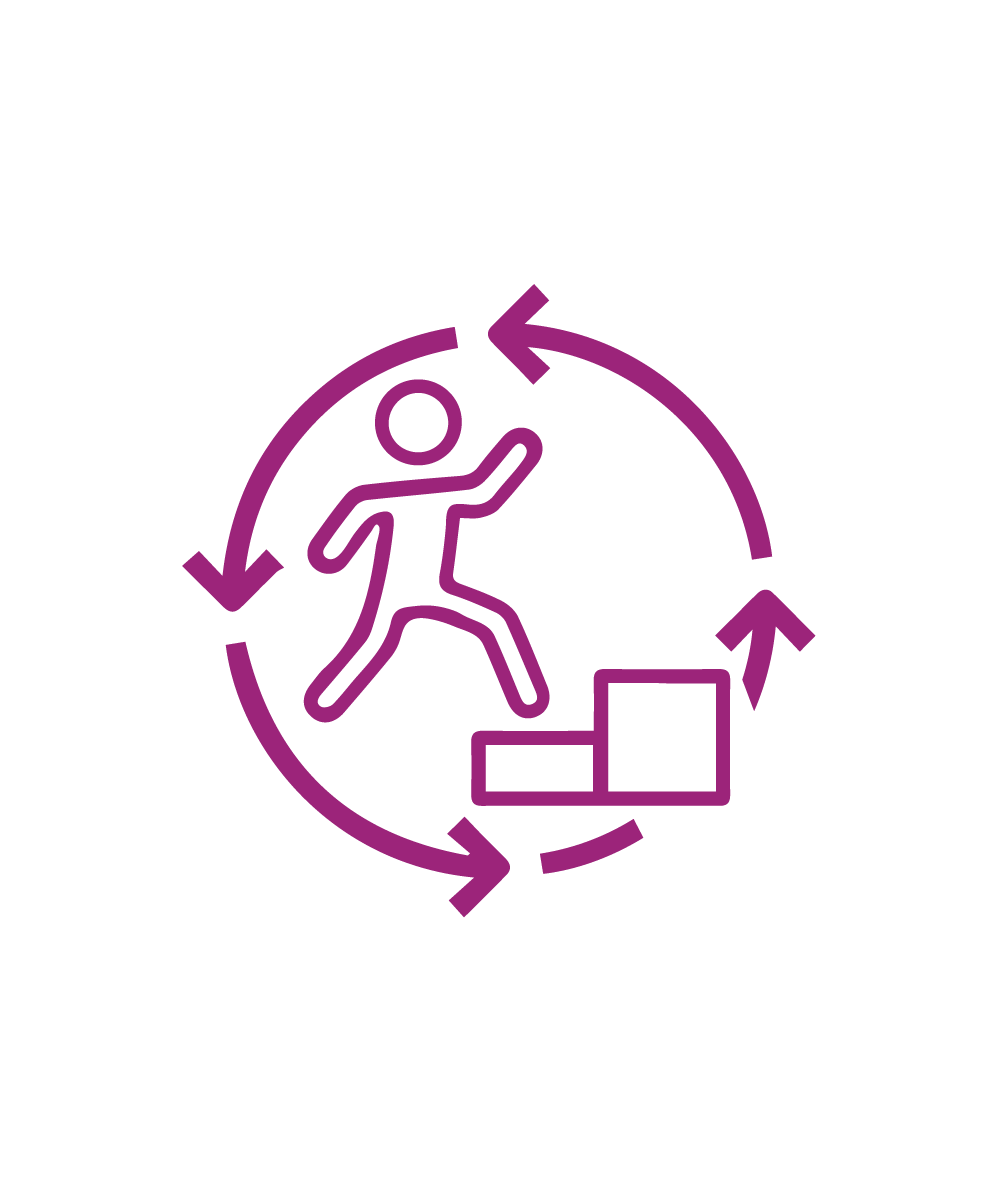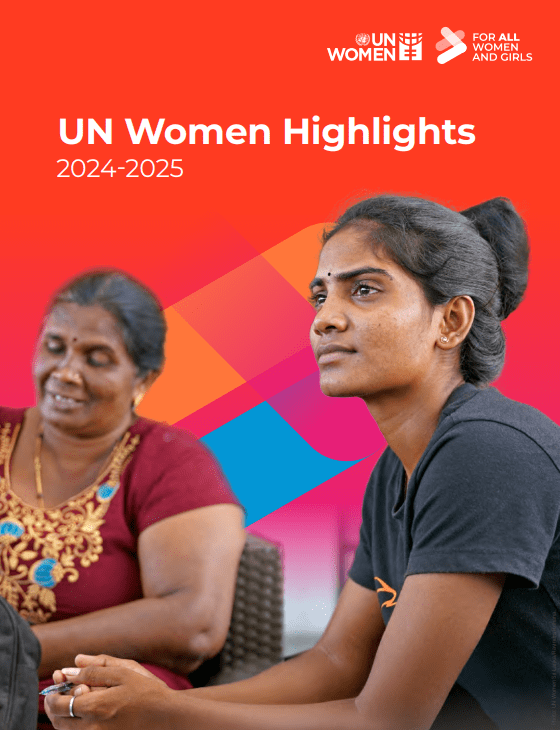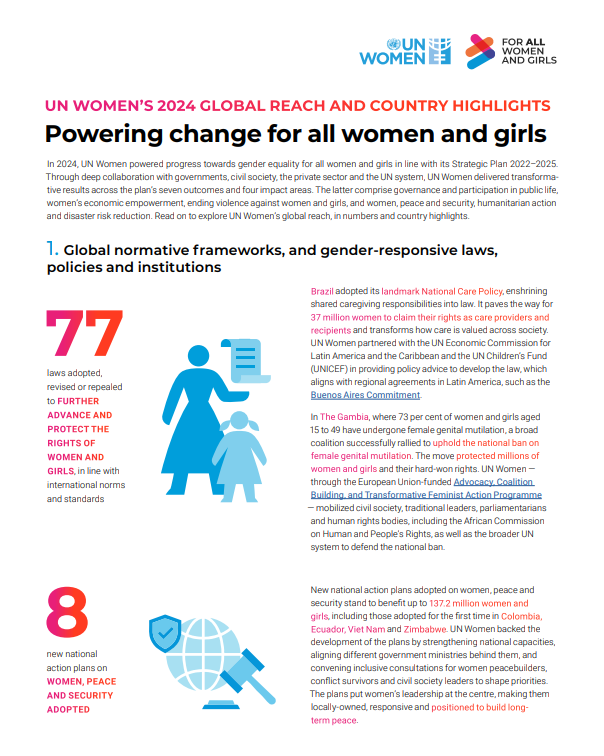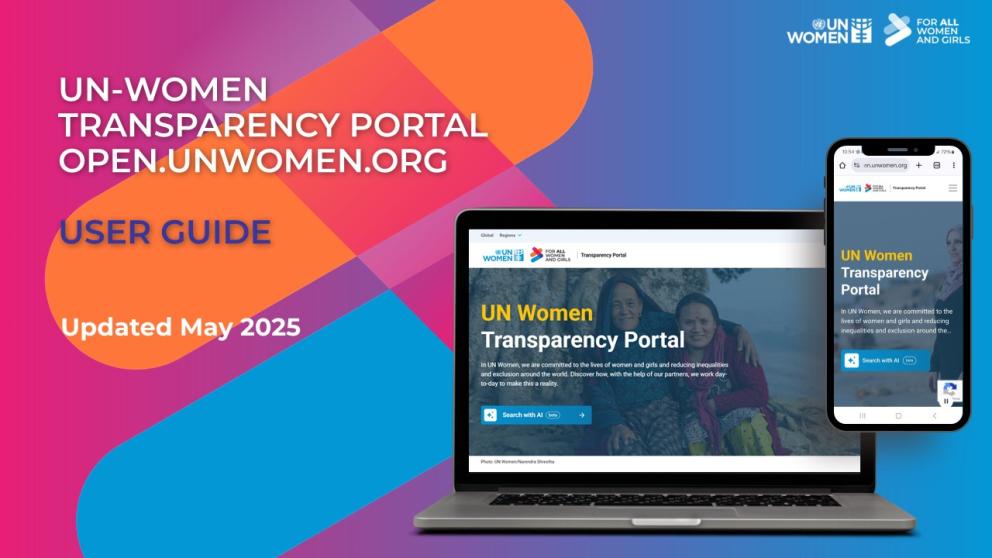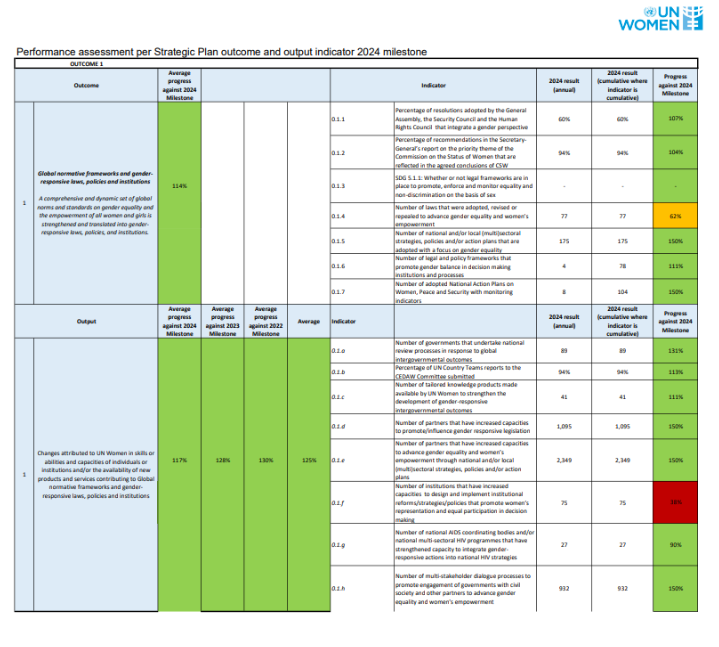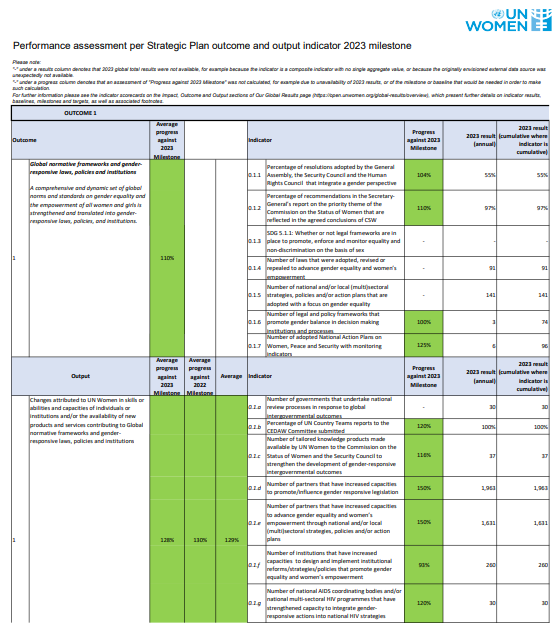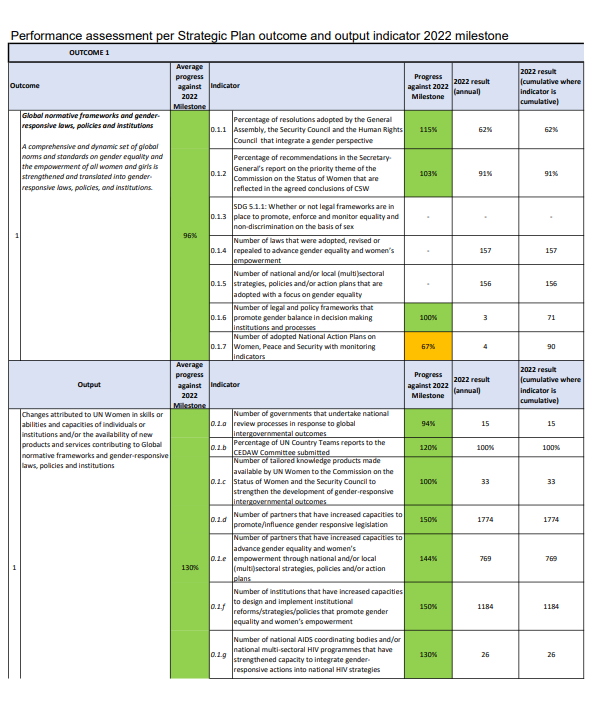Key aggregate results of the Strategic Plan
across 83 countries now have a more supportive legislative and policy environment protecting their rights following UN-Women's successful collaboration with national partners.
were adopted, revised or repealed to further advance and protect the rights of women and girls, in line with international norms and standards.
across 95 countries with strengthened capacities to deliver quality goods, services, and resources for women across the humanitarian-development-peace continuum.
adopted 490 gender-responsive national and local multi-sectoral policies, strategies and plans, addressing issues such as equal pay, the economy of care, violence against women, environment and climate change, and women, peace and security, potentially benefitting 2.7 billion women and girls.
have been disbursed to civil society organizations, local women-led organizations and networks, working towards the achievement of gender equality, including in conflict and crisis settings.
- such as dialogues or coalitions - have been established in in 104 countries to enable the meaningful and safe engagement of civil society representatives in policy design and decision-making.
have adopted strategies for the prevention of violence against women. These efforts are leading progress towards SDG(Sustainable Development Goal) indicators 5.2 and 5.2.2 to reduce the proportion of women and girls subjected to physical, sexual or psychological violence.
- including entire communities - stand to gain from inclusive efforts to prevent conflict, build sustainable peace and reduce the devastating impacts of violence on their lives and communities, as outlined in the 18 new national action plans on women, peace and security adopted since 2021.
in the number of United Nations Country Teams who reported on the UNCT-SWAP(System-wide Action Plan) - strengthening accountability of the UN system to women and girls.
(137% increase since 2021) have now committed to fostering business practices that empower women through the Women’s Empowerment Principles.
national and local multi-sectoral policies, strategies and/or plans were adopted in 58 countries, with the potential to benefit 2.6 billion women and girls
in 82 countries have increased capacities to influence gender-responsive legislation, strategies, policies, action plans and/or institutional reforms
have a process to design and implement Violence Against Women (VAW) prevention strategies, or with VAW prevention interventions based on global norms and standards
across 79 countries, including many survivors of violence and internally-displaced women and refugees, accessed information, goods, resources and/or services with support from UN Women
across 87 countries have enhanced capacities to deliver and/or monitor essential services, goods and resources for women and girls in humanitarian and development settings
or mechanisms, across 84 countries, enhanced leadership capacity and enabled meaningful and safe engagement in decision-making
UN Women worked to ensure statistical systems do not turn a blind eye to women, supporting 76 gender statistics/data initiatives to inform policy, programming and budgeting and/or develop national plans and strategies, and 31 countries used the data for policies and programmes
that developed Cooperation Frameworks in 2023 prioritized gender equality (72 per cent in 2022) with UN Women’s support
adopted by the General Assembly, the Security Council, and the Human Rights Council integrated a gender perspective
advanced gender-responsive fiscal laws, policies, budgets, and systems
advanced policies to end violence against women and girls, with a strong focus on prevention including addressing harmful social gender norms
across 30 countries supported to participate in humanitarian coordination and decision-making processes
collection initiatives were implemented
across six regions adopted or amended to advance gender equality and women’s empowerment
were allocated to projects supporting gender equality and women’s empowerment
in the Secretary General's report on the priority theme were reflected in the Commission on the Status of Women (CSW) agreed conclusions
for gender equality were developed and/or implemented
promoting women's access to decent employment were developed and/or implemented
produced and made available data on the prevalence of sexual harassment against women and girls in public spaces
include specific provisions to improve the security and status of women and girls
worldwide promoted gender-equal social norms
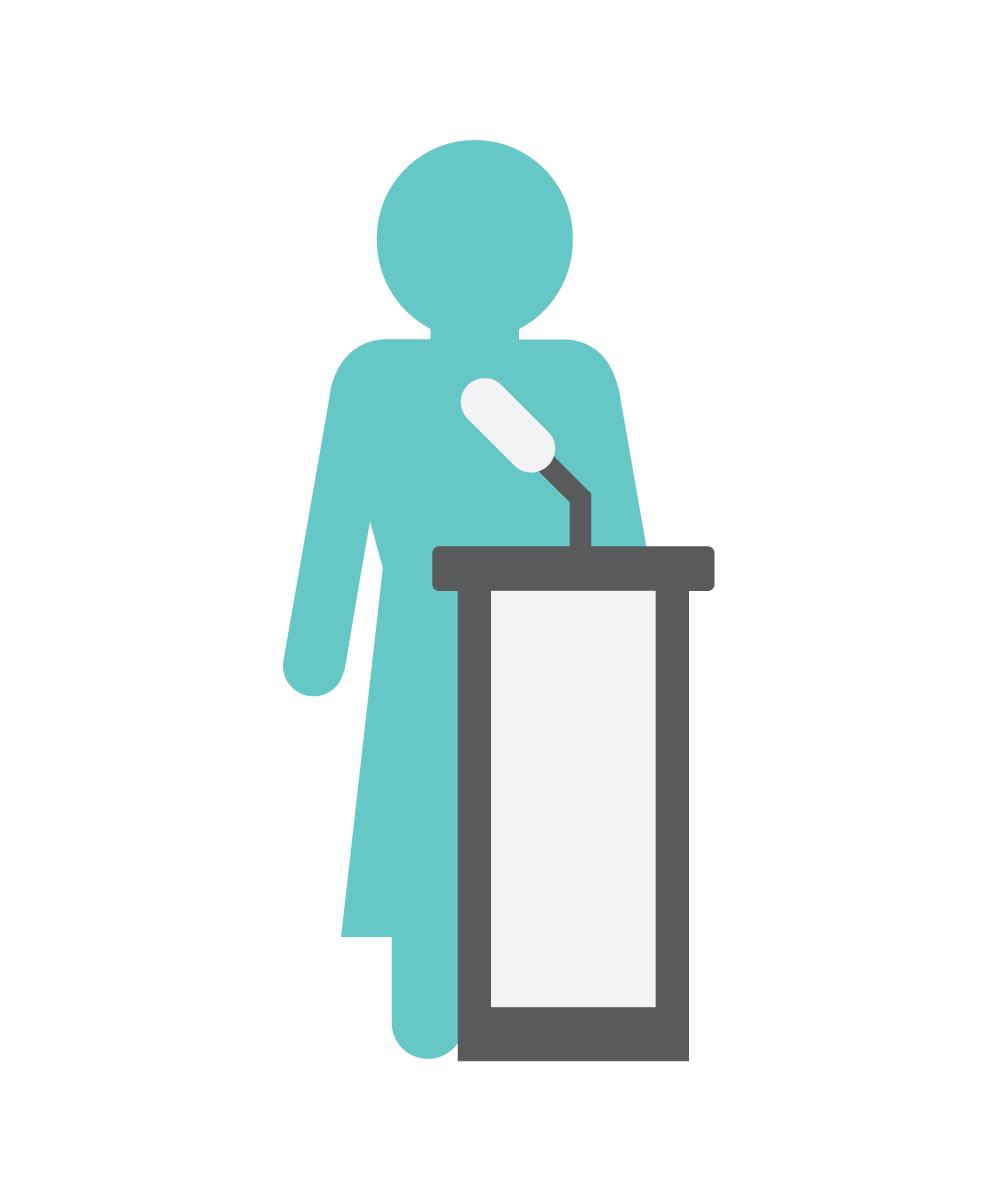
Women fully and equally participate in leadership and decision-making and women and girls benefit from gender-responsive governance.
Explore more
Women have income security, decent work, and economic autonomy.
Explore more
All women and girls live a life free from all forms of violence.
Explore more
Women and girls contribute to, and have influence in, building sustainable peace and resilience and benefit equally from the prevention of conflicts and disasters, and from humanitarian action.
Explore more











